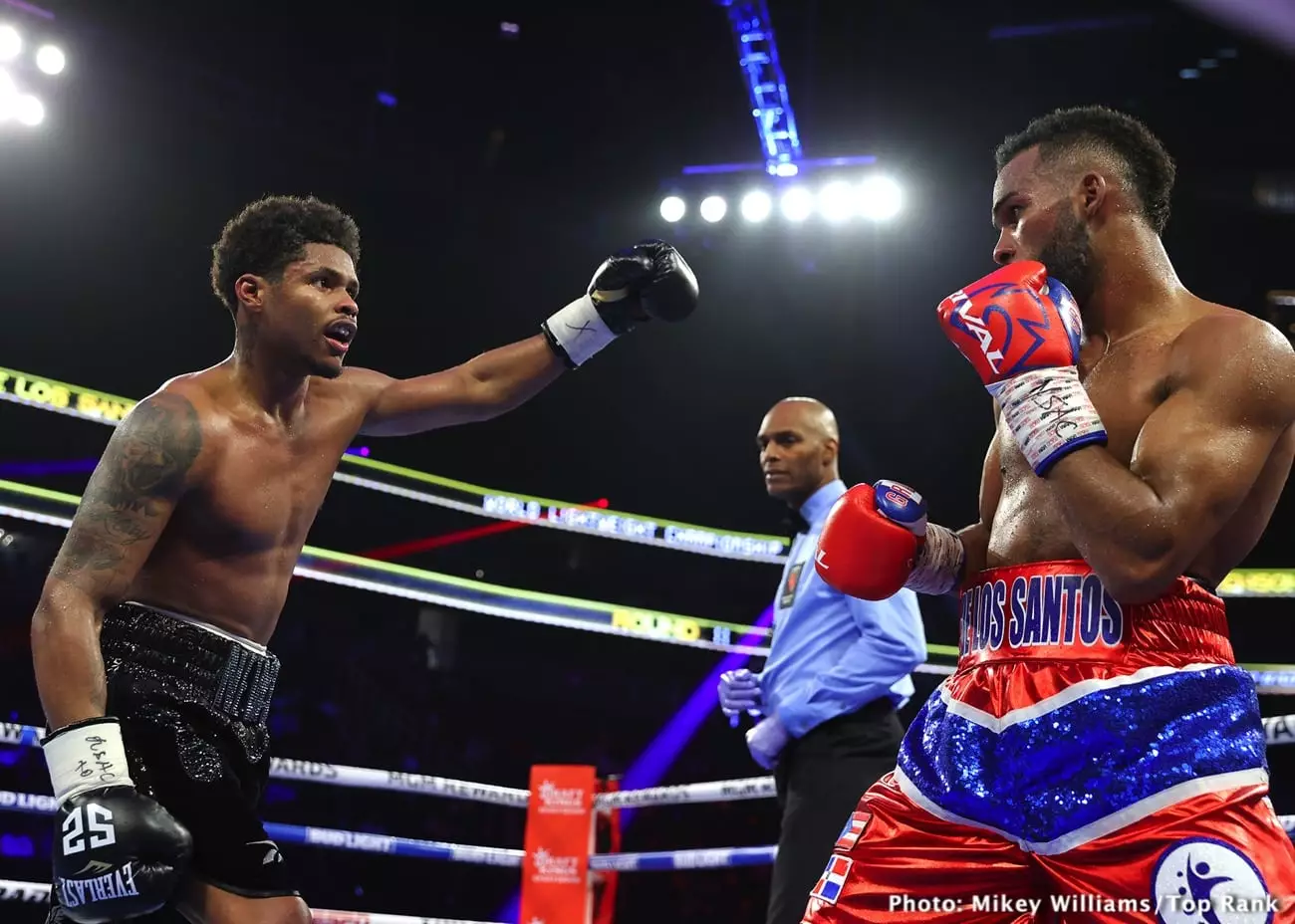In the world of boxing, the dance between promoters, fighters, and expectations often leads to confusion, frustration, and sometimes outright animosity. Recently, Shakur Stevenson stirred the pot by calling out Oscar De La Hoya regarding the apparent delays in finalizing a fight with William Zepeda. As the WBC lightweight champion, Stevenson’s dissatisfaction is not purely about waiting but highlights deeper issues within the sport and the promotional landscape.
Stevenson expressed his frustration on social media, suggesting that both De La Hoya and Zepeda may share the blame for the prolonged anticipation surrounding their potential matchup. This criticism exposes a recurring theme in boxing: the protracted negotiations that often leave fans in the lurch. The complexities of matchmaking in the sport can arguably overshadow the fighters’ talents and the excitement that their bouts could bring. For fans eagerly awaiting a bout featuring the undefeated Zepeda, this delay raises questions about the motivations behind the scenes.
While Stevenson believes a fight with Zepeda is a guaranteed outcome, the reality may be more nuanced. Zepeda, with an impressive record of 32 wins and 27 knockouts, has a range of options that might prove more lucrative or thrilling than a bout with Stevenson, who has faced criticisms regarding his style. Stevenson may overestimate his own allure in the realm of lightweight boxing; despite holding a championship title, his style has been described as unexciting. This perception could push Zepeda—a fighter known for his action-packed performances—to pursue different champions who could generate more viewer interest and excitement.
Popularity plays a crucial role in the matchmaking decisions of boxers. Zepeda’s reputation for being an engaging fighter contrasts sharply with Stevenson’s perceived lack of charisma. He throws an impressive volume of punches while maintaining an exciting in-ring presence. In a sport where fan engagement can crystalize future financial success, Zepeda’s capacity to draw viewers makes him a prized opponent. If Zepeda does hold the cards in this negotiation, Stevenson’s public questioning of his motives may be a miscalculation, revealing a deeper need for Stevenson to increase his appeal to both fans and potential opponents.
Stevenson’s assertions come in the wake of Zepeda’s victory over Tevin Farmer, where Zepeda showcased his skills effectively. The reception of this fight may illustrate a growing disconnect between what Stevenson perceives his marketability to be and the realities that Zepeda enjoys. Zepeda’s flair for exciting battles makes him a naturally popular choice for broadcasters and audiences alike. Simply put, Zepeda’s ability to engage could make it easy for him to disregard Stevenson’s challenges.
As talks continue—or perhaps stall—between the respective camps, the tension illuminates broader issues within boxing’s promotional framework. Fighters like Stevenson need to craft their identities not just as champions but also as compelling figures within a vibrant sport. Whether it leads to a showdown with Zepeda or another direction entirely, the outcome might require Stevenson to rethink his approach to promotion, engagement, and the art of negotiation in a world brimming with potential but often hindered by delays and indecision.

